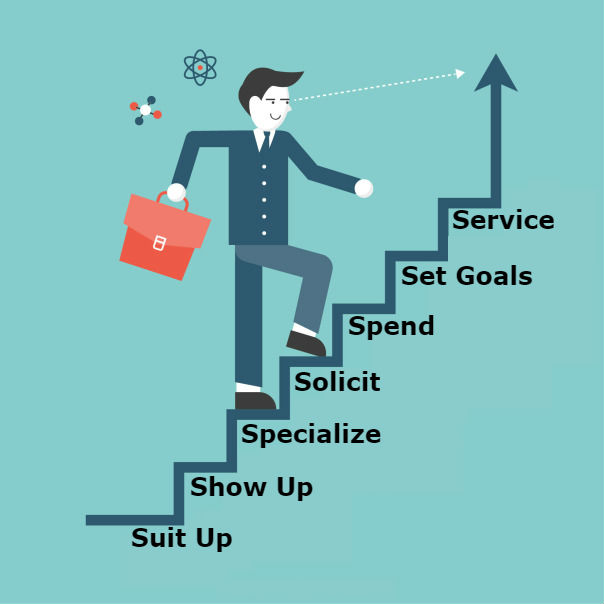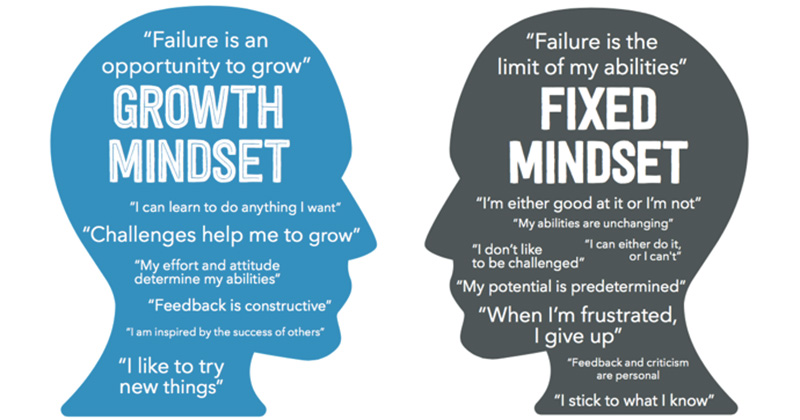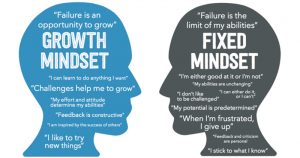
by andrew | Apr 23, 2018 | Goal Setting, Mindset For Success, Success
Welcome to real estate sales! The hardest and most challenging roller coaster ride of your life. Yet this profession can also be so very, very rewarding.
When I came out of corporate America and started my real estate career, I did not have an extensive network because I worked 80 hours a week. I wasn’t as connected to the community as others. I was starting a business from scratch and I knew excuses would not create income. So, I took what I knew from engineering – system, structure, and process – and applied that to my business.
I knew if I created and followed a formula, success would flow. And it did! Following my “7 S” formula I became the rookie of the year, #1 producer in my office and 3 years later the #1 agent in my market. Later in my career, I had the skills, desire and drive to create my own real estate brokerage: JP & Associates REALTORS®. And I’m proud to write that in the last 6 years – following the “7 S” formula DAILY- we’ve come from being a dream to being named the 88th largest firm in America!
So, what’s the formula? It’s the 7 S’s:

“You are capable of success, you just need to take the first step”
SUIT UP
Every day I suit up – I suit up mentally and physically. Unless you live in Malibu where you can get by at times with shorts and flip-flops, suit up and look like a successful, professional. Everyday dress for success for the norms in your area. That included my car… now at first, I could not afford a fancy car, yet I invested in a 4-door car that was always clean and ready to go.
Suiting up for me also meant my daily mental routine. My friend and COO Mark Johnson at JPAR, recently wrote: “the mind is its own place. Inside it, you can make a perfect place miserable and a miserable place nearly perfect.” That’s so true. Each day I focused on the positive things I could create in my business and for my life. You see I knew, what I focused on expands and I chose to focus on being mentally tough and taking inspired action daily.
What I learned I had to BE the agent that people wanted to work with and refer friends to. You can do the same. Suit up every day mentally and physically! EVERYDAY. This is where agents begin to fumble and falling off the wagon so very early in the steps.
SHOW UP
In my business, I showed up! I showed up to as many local and regional real estate events and community events as possible. Became involved in all my kid’s activities and filled my calendar with appointments! Appointments I learned was my “money ball” the equivalent of getting on base. The more I got on base the more signed contracts I created. I made appointments with everyone who could help me: with title companies, lenders, friends, clients, other top producers. While others would not begin arriving in the office until 11 every day, I got to the office EARLY. I made it a point to never eat lunch alone. Coffee anyone?
What I learned after suiting up was to SHOW UP and show up everywhere! Show up until you don’t need a business card to introduce yourself in your market.
SPECIALIZE
Generalist struggle and specialist thrive. When I ask an agent their specialty and they answer, “I’ll go anywhere,” typically, that answer is a signal for help! I’ve observed that agents who go anywhere struggle more than agents who specialize. Yes, most of us live in or near a large market, yet a niche specialty market is a secret to stretching your dollars and maximizing your exposure. Niche markets are all around us… consider what industry you come from like Nursing, teaching, law enforcement? You can specialize in those markets. What about specializing in investment properties for high wealth individuals? Of course, there is always the local neighborhood. You can make a great living by becoming the hyperlocal expert in a 300-home area by becoming the “hub” for all things real estate and home ownership related. You’ll provide a great service to your “farm” and love your business.
I learned this early in my career. Your marketing dollar cannot cover an entire wide area. Your audience needs to be narrow and they need to hear or see your message daily.
SOLICIT
It seems in today’s world the word “solicit” or “sales” is almost a dirty word. Yet consider this… nothing in this world happens until someone buys or sells something. And those who do so in an eloquent and professional way can be well rewarded. Fact is, real estate sales in many ways is a commodity like milk, juice, and airlines. Yet you can differentiate yourself in service, follow up, expertise and always delivering on your promises.
So, don’t be a secret agent. You’ve got to get out there and engage with the people you know and the people you don’t know. Build and maintain relationships. Wear a name tag; slap a magnetic business card on the side of your car; hand out business cards; conduct open houses and invite ALL the nosy neighbors. Spark discussions about real estate with everyone you meet. And then be prepared with your U.S.P. Your unique selling proposition… (google it!). Finally, develop your network of professional relationships who you can cross-refer business.
Keep in mind, I learned early on that “what you say matters.” I can’t emphasize enough the importance of role-playing and practicing. Agents who rehearse the buyer presentation, rehearse their listing presentation and rehearse the most common objections simply outperform those agents who don’t. It’s just that simple: practice with someone in the office NOT on your potential customer.
SPEND
I’d rather say “invest” but it doesn’t start with an S! You have to spend, to invest money to make money. And every spend should have a direct ROI (return on investment) back to you. Be smart, be strategic but have a budget each month that is invested in tried and true lead generation and set aside a budget to always be testing something new and innovative.
Limited money? Check equity or sweat equity… it’s your choice, just be resourceful in how you spend your time, talent and treasure. For example, in some cases, you can door drop and save money on direct mail. Whatever you do, however, you choose to do it remember the purpose of all real estate marketing is to get an appointment. Get the appointment is your money ball!
Most agents don’t even have a budget. Create one now, and work toward increasing the spend monthly, not reducing it. The more you spend toward lead gen, marketing the more appointments you can create.
A scared money will never make you real money. Look at where top producers spend their money in lead gen and outspend them over time to take their place. Simple enough.
SET GOALS
Life rewards the specific and punishes the vague. You tell me, which agent is going to make more money this year:
Agent 1: “how much money would you like to make this year?”
As much a possible!
Agent 2: “how much money would you like to make this year?”
I’m going to serve 50 families this year to either buy, sell or invest in real estate. By talking with 10 people a day (4 I know; 4 I don’t know, and 2 from previous lead follow-ups) I’ll make 4 appointments a week and sign 1 new contract each week.
Which agent of these agents is going to win at the end of the year?
You are a business owner now and business owners don’t wing it. Set big goals that motivate you to take big actions.
EVERY. SINGLE.DAY. You should have a checklist of things you want to accomplish towards the master goal. Don’t quit the day until you have those things done.
As an engineer, I was given a Franklin Covey planner. I had one of those in my days selling real estate and to this day I carry a notebook. I want to check things off my list daily. It’s fulfilling. It’s personally rewarding.
SERVICE
You can specialize, solicit, spend all day long, but in the end, the willingness to help people and be active in your community carries more weight than gold in our business. Get involved in your church, your community events. Volunteer in your kid’s groups and local organizations like the Junior League, or Women Leagues, or Rotary club. It will take some time to get business from those circles, but if you have a genuine approach and take time business will come.
Zig said it best. You can have everything you want in life if you just help enough people get what they want.
Make it happen each day, use the 7 S formula and success will flow. If you didn’t catch my previous post on the 7 Things I Wish My Broker Had Told Me, then check it out.

by andrew | Apr 18, 2018 | Goal Setting, Mindset For Success, Real Estate, Success, Top Producer
Episode 1 is out!
Welcome to our first episode of success from scratch. Each Wednesday we will highlight a staff member, partner or top producer just like you.
For this week’s episode, watch and learn how our very own Joe Potts, started in the real estate industry and how he managed to be a wildly successful team leader today.
His secret? Find out by watching this:
“If it’s not on your schedule, it doesn’t exist!” – Joe Potts

by andrew | Apr 16, 2018 | Priorities and My Time, Productivity

“Deciding what not to do is as important as deciding what to do.” – Jessica Jackley
Delegate, Automate or Eliminate — Today’s post is short and sweet. Sometimes those are the best, yes!?
You see, I’ve seen too many entrepreneurs follow this idea like it’s some kind of commandment: “If you want something done right, you have to do it yourself.”
Can you relate?
Imagine if you could delegate, automate or eliminate many of the tasks you’re not good at, or dislike… like booking appointments, marketing yourself or running errands. The result? Creating more time to do what you are best at, love and find important.
The key in delegation, is understanding and accepting that others simply won’t do it like you. So, get over it! Have standards, yet allow your team to run with it. When you do, what is possible in your personal productivity and life satisfaction?
For automation consider “If This Then That.” IFTTT is the freeway to get all your apps and devices talking to each other. Not everything on the internet plays nice, so IFTTT is on a mission to build a more connected world.
Consider letting go of some of the things so you can spend more time in your genius zone. CrisMarie Campbell and Susan Clarke, Business Consultants and Authors of The Beauty of Conflict recommend taking an honest look at how you are spending your time through a four zone model.
What is your zone?
- Zone Of Incompetence – you don’t do these things well. Better to eliminate, automate or delegate.
- Zone of Competence – you can do these things but don’t like them much. Better to eliminate, automate or delegate.
- Zone of Excellence – you are very good at these things. They bring you success, but they don’t make your heart sing.
- Zone of Genius – you absolutely love doing these things, you do them well and they give you the highest ratio of abundance and satisfaction to the amount of time invested.
What type of workplaces you in your genius zone?
What can you delegate, automate or eliminate this week? This week is YOURS. Own it!

by andrew | Apr 9, 2018 | Productivity
Many of you know my story… I’m an immigrant from Italy that came to America barely speaking any English and now, the leader of the 88th largest real estate broker in America. In the last 6 years, we’ve grown from the trunk of my car to #3 in the DFW marketplace and #88 in the nation. When I created JP & Associates REALTORS I wanted to provide a solution for top producing agents and teams, I wanted to create a culture of productivity and service, I wanted to help others overcome the 7 things I wish my broker had told me along the way:
 What do you need to know as an Agent?
What do you need to know as an Agent?
First, the conclusion… instant success is very rare. I’ve learned there are simply no shortcuts on the road to success in real estate. It takes hard work dedication and what I call the “7 S’s” of success. (More on the 7 S’s in a later blog post). Yet I’ve also learned there are no speed limits either, you can move as fast as you can, and no one is going to stop you. Success is never owned it’s only rented. And in real estate sales, the rent is DUE every day!
Second, don’t confuse being an independent contractor with being the CEO of your own business. It’s true you are an independent contractor; however, that does not mean you’re free to do whatever you please. I wish my broker had told me, being the CEO of your own business… that happens when you unite your talent with your leadership skills. Understanding where you are now; creating an action plan to eliminate gaps; developing systems, structure, and process for your business and having the mental disciplines to win is what separates the rich from the rest.
Third, the job of ALL marketing and social campaigns is to generate appointments that lead to signed contracts, period. When I was selling full time, my sole objective was to participate in activities and marketing that led to signed contracts. Everything else was secondary. That means assertive networking, self-promotion and relationship building.
Fourth, generalist struggle while specialists thrive. Meaning create a niche for yourself. I see so many of you trying to be all things to all people. “I’ll go anywhere!” Really? Why? Because you are so afraid of where the next deal comes from. Develop your brand so you are known for something… “the condo queen,” the “luxury home specialist,” the “relocating executive expert,” the “investment hub for doctors, lawyers and other professionals.” Be known for something, not everything. Stay in your lane… if you get a commercial deal refer that to a specialist; you get a short sale lead refer that to an expert; you have lead for farm and ranch refer that to the folks that know “the dirt.” Going outside your expertise is the fastest way to disaster in your business.
Fifth, I quickly learned that when I help people achieve their goals it’s easier for me to achieve mine. I never approached a potential customer with how much commission I could make. I always served my potential customer with what they needed. Once I understood the importance of allowing people to make their own choices in finding a place to live my business changed. I learned to become the HUB, the local area expert and my brand stood out as the go-to guy.
Sixth, I wish my broker has told me that my colleagues could be both good friends and tough competitors. No one owns the business – not them and not you. It’s the only job you wake up each day unemployed.
Seventh, I wish I’d known the fact that everything in real estate stays the same, yet everything changes. Typically, in 90-day cycles. Every day you will be presented with challenges and opportunities to stay ahead of technology and the industry. Without a well-defined business plan, a strategy and a process to evaluate that strategy you will be whipped around by the forces to be vs. building a business by design.
What to do next?
At the end of the day, decide what you want; create a compelling reason why you want it; find an accountability partner; stay committed vs just interested; execute your plan with passion; remain flexible yet focused and finally celebrate the small wins along the way. I’d leave you with the exercise, with this action plan for today:
Think about what the next 5 years, the next 10 years look like for you. When you stand there and look back at today, who do YOU NEED TO BE to make that happen? Go BE that person today! At JP & Associates Realtors, we are here to encourage, support and celebrate your journey.

“We are here to encourage, support and celebrate your journey. – JPAR Team”

by andrew | Apr 3, 2018 | Goal Setting, Productivity
The first quarter of 2018 year is gone. Can you believe it? Where did the time go?
Are you ahead, behind or on track with your personal & business goals? In any case, I’d encourage you to “declare it perfect and move forward powerfully.” Make the necessary adjustments, and keep moving forward.

“It’s not where you start but where you finish that counts”
The story of Bennett Moehring.
Bennet hadn’t even turned 21 yet when he suffered one of the most crushing disappointments of his life, live in front of nearly 70,000 people in “swirling snow,” he missed a game-winning field goal in the Army-Navy game allowing Army to win 14-13.
After the failed 48-yard kick, his teammates helped him off the field, and he wept in the locker room. But then he started drawing upon what he’d learned from the leadership course he was taking and from talks about character he’d heard from Navy coaches. He decided to face reporters, take responsibility, and talk about how lucky he felt to play football. “I’ll use this as motivation,” Moehring decided. “I’ll get better. It’s the only option.”
Then a surprising thing happened. Moehring started getting words of encouragement from everywhere offering him praise and support via social media, email, and texts. All of this backup, as well as soul-searching on his own part, eventually helped Moehring cut himself some slack on not making what was likely a near-impossible kick in the first place. He realized that his missed field goan turned out to be more of a blessing than a burden. “If I made the kick, the glory would’ve faded,” he said. “But with this, I can be an example of good sportsmanship, and that’s lasting.”
Bennett Moehring “declared it perfect” and so can you.
Next Monday as a firm – our support teams – will learn from the past 3 months: we will celebrate success and also make whatever adjustment and changes are needed to not only catch up with goals but also to move ahead.
This is just the first quarter of 2018. We all have plenty of time to reach our 2018 goals… as long as we are all willing to execute the daily activities, track the results, make the changes to our behaviors and engage an accountability partner.
Are you interested or committed? 75% of the year remains, let’s go!

by andrew | Apr 2, 2018 | Mindset For Success
Do you spend time worrying that you aren’t good enough to succeed? That you’re just not capable or that you aren’t smart enough? You’re not alone. In this article, you will learn how our mindset matters in everything we do.
Your Mindset Matters

Do you have a growth or a fixed mindset?
Susan David in her HBR article “How To Manage Your Inner Critic“ gave some really good tips. She states, quieting your inner critic takes a series of specific steps:
First, it is important to recognize that the most commonly used strategy — trying to ignore or suppress your inner critic — simply doesn’t work. Rather than suppress your emotions, acknowledge that they are real, whether justifiable or not. The trick to dealing with your inner critic is to develop a balanced relationship with it. More or less learning how not to ignore it and the emotions it raises, yet also not allowing yourself to be bullied by it.
Second, examine your inner critic. Ask it: “Where do you come from?” This might feel awkward at first, yet speaking internally with your critic is a valid technique that encourages you to think objectively. We’re influenced by many factors, including competition with our peers, the media, our relationships with our significant others, and more. Once you understand the places your inner critic comes from, you’ll be able to recognize when it’s telling you the truth and when to disregard it.
Third, understand that your inner critic can actually help you. Your inner critic has evolved to help you set and meet high expectations. If you’re open to it – which is not the same as believing everything it tells you – then you can learn from it. Like a good coach, your inner critic reminds you that knowledge and capability are important. Ask it: “How will you help me achieve success in the task ahead?”
Forth, act in spite of your inner critic. You can learn from your inner critic. Yet be careful to not give it too much power. Find and maintain the right distance — keep it close enough to be useful, but not so close that it gets in your way. As soon as you hear your inner critic complaining, acknowledge the information — but always ask: is my inner critic helping me or hurting me? If what it’s telling you saps your confidence, then ask it to step aside and continue on your way
In the end, it’s helpful to remember that as loud as your inner critic can be, it’s just a part of you and not the whole. Don’t let it stop you from continuing to take action, learn and grow.

by andrew | Mar 26, 2018 | Priorities and My Time, Productivity, Service

The most URGENT or the most IMPORTANT?
What matters most – the most urgent or the most important?
If you are like me, you face the challenge each day of choosing to handle what is urgent and what is important. I’ve been struggling with this balance lately and wanted to re-ground myself in those things I know are important, helpful and useful in focusing on those activities that make a true difference.
Every expert I’ve asked agrees – if you let urgent matters consume your time, you’ll never get to those important projects, activities or tasks. In many cases, those important projects, activities, and tasks are the ones that generate the most revenue, creates the most satisfied clients or help you be more productive in delivering an exceptional consumer experience. The word project here does not necessarily mean a specific project it could be a task or activity. For example cultivating relationships with clients, vendors or co-workers, acknowledging a job well done, taking time to improve a skill or focus on your health by exercising, are all important but not urgent activities.
Stephen Covey recorded an exercise with rocks of different sizes (small, medium and large rocks) and a glass pitcher. Students see all the rocks in the container and the instructor empties the container and then has a student try and get all the rocks back in the pitcher. Most if not all, the students failed to get all the rocks back in – they typically start by placing all the small rocks in the pitcher and then trying to stuff the remaining large rocks into the pitcher. The instructor steps in, place the big rocks in the pitcher first, and then all the little rocks fall into place and they all fit!

Start with the BIG rocks first.
Few of us have the luxury of focusing on just the urgent or just the important; to be successful you must be able to manage the important and the urgent. How can you handle both?
Keep the big picture priorities in front of you at all times. Do you have a “top 5” list? What are the outcomes you what to achieve? By keeping the big picture close to you it makes it easier to get back on track after an “urgent” distraction is handled.
Turn your email off and only focus on email during specific times during the day.
Schedule your important items as actual appointments – schedule specific times to focus on your most important projects when urgent matters don’t normally occur. The phrase, “How do you eat an elephant? One bit at a time” comes to mind.
Urgent matters get in the way, so plan for it! There are certain things in our business that we can plan on happening. These urgent matters draw you away from your important priorities. Schedule these interruptions as part of your daily routine.
Before you tackle an urgent matter, ask yourself how important is it to do “right now.” Can it wait? Can someone else handle this? Is it an excuse to get off task and avoid the harder work of the important project list?
What you measure you can manage. Here is a proposed action plan to help you see your own pattern. This week, keep a journal and take note of the following:
- What task or project you are working on?
- How much time are you devoting to this task?
- Why are you doing this task?

What you measure you can manage and improve.
At the end of each day write a “U” for urgent or “I” for important next to each entry. How do these activities relate to your big picture and overall priorities?
After the week is over, read through your journal and cover these 7 areas:
- How many U’s and I’s did you have?
- Are you closer to achieving your big picture or farther away?
- How many U’s could have been bypassed or delegated to others?
- How does the U’s interfere with your I’s?
- If your number of I’s is low, what got in the way?
- How can you better manage or cut out some of these U’s?
- Are you avoiding your I’s?
If urgent items keep getting in the way, stop the madness. Talk to a trusted advisor, business coach or counselor and get clear on some strategies and tactics that will work for you in staying focused on the important while handling the urgent.
by andrew | Oct 24, 2017 | Real Estate, San Antonio
Selling a home can be a difficult task for even the most seasoned of sellers. There is so much that goes into the process of placing a property on the housing market. First, the owner needs to get the home in condition to present it to potential buyers. From there, taking proper pictures that display your residence in its best light is a must. These are the images that are going to grab the attention of those that are searching through the housing market. Unfortunately, even the best pictures don’t ensure that your property will be seen. After all, you are competing with your neighbors for the attention of a select few.
As with any competition, it is important to find an edge. This is where an experienced realtor can be your ace in the hole. With an extensive list of interested buyers, as well as the knowhow to market your listing to a greater audience, real estate agents make it their mission to get the most money for your property. When you have a team of skilled agents on your side, the competition gets left in the dust!
Original Article: http://www.jparsanantonio.com/blog.php

by andrew | Oct 24, 2017 | Dallas, Real Estate
Think you have to wait three to seven years after a foreclosure before you can get a new loan? You may be able to cut that in half.
——
Typically, you have to wait for years after a foreclosure to get the financing necessary to buy a new home, but you may be able to get a loan much sooner if you improve your credit score, budget and save. Throw extenuating circumstances into the mix, and your wait time could be even less.
——
Were you one of the millions of Americans that suffered a foreclosure in the last several years? If so, you are well aware that it leaves a black mark on your credit and prevents you from obtaining the financing to purchase another home for three to seven years, or longer depending on how you handle your money after the foreclosure.
But, you may be able to drastically reduce your wait. In fact, if you are able to prove that you experienced an “economic event” that caused your household income to fall by 20 percent of more for a period of at least six month, you may qualify for financing within a year. You must be able to demonstrate, though, that you have fully recovered from that event and agree to complete housing counseling prior to closing.
Whether or not you have experienced a life-changing economic event, you can take steps to shave off time from that seven-year waiting period. Here’s what you need to do.
Improve your credit score.
A foreclosure can cause your credit score to drop by up to 150 points. In order to qualify for another home mortgage, you’ll have to compensate. Start by paying your bills on time.
Thirty-five percent of the points that make up your FICO Credit Score, the standard credit-scoring model used in today’s lending environment, is based on your payment history. Just to reiterate: that’s more than one-third of your credit score. If you have a poor payment history (in other words, a lot of late payments), you’ll have trouble qualifying for any loan because your credit score demonstrates you are a risk. The folks over at USnews.com agree, saying, “Accounts that are 90 days late will have a bigger negative impact on your score than those that are 60 or 30 days late. So pay off the most past-due accounts first, and gradually catch up on all your payments.”
Reducing your debt can also have a big impact on your FICO Credit Score. In fact, at 30 percent, a lower debt to income ratio the second largest factor in determining your credit score. Having some debt isn’t necessarily bad, but how you manage it can be. Visit MyFICO.com to learn exactly how debt can affect your score.
Other factors used to determine your credit score include how long you’ve had credit, the types of credit you use (retail, installments, etc.), and whether you’ve opened any new accounts.
Create a budget.
Having a budget is key to turning your finances around. Without a budget, it’s easy to miss payments or run out of funds before the next paycheck arrives, necessitating a credit card withdrawal that increases your debt and ultimately impacts your credit score. The good news is setting up a budget is relatively easy.
First, record all your sources of income. Then, gather your financial statements, including bank statements, utility bills, credit card bills, and any other payments. Add to that a list of your monthly expenses, such as car payments, auto insurance, groceries, utilities, housing costs, entertainment, and anything else you spend money on. (Be specific.) This should give you a good indication of what’s coming in and what’s going out.
Next, total your income and expenditures and make adjustments as needed. You may find you need to cut out that double latte, or you just might find that you have some extra money every month that you can use to first reduce your debt and then to create an emergency fund. An emergency savings fund of three to six months’ worth of living expenses is key to demonstrating to a lender that you are prepared financially to manage a mortgage again.
There are several great programs and tools out there that can help you get your finances back on track, including Dave Ramsey’s Total Money Makeover and Mint.com.
Choose your future housing wisely.
Let’s be honest: you probably lost your house in the first place because you bought more house than you could afford or because you didn’t have a savings buffer set aside to help you get through a financial hiccup. Your newly established budget should help you avoid repeating that mistake. Once you know how much money is coming in and how much is going out, you will know definitively what you can afford to pay for housing. Note: you should limit yourself to house payments of no more than 28 percent of your total income.
Save for a down payment.
Again, if you want to buy a house again as soon as possible after you have go through a foreclosure, it’s essential that you have a budget to help you improve your credit score and save money. Once you have your emergency account fully funded, you need to save for a down payment on your next house. How much you’ll need in the bank depends on the cost of the house you intend to purchase (since the amount of the down payment is a percentage of the purchase price) and the type of loan you will be getting. Typically, for a conventional loan, you’ll want at least 20 percent to avoid private mortgage insurance.
Use extenuating circumstances to your advantage.
The FHA made it drastically easier for homeowners who’ve suffered a foreclosure to get a new loan by shortening the wait time if there’s been extenuating circumstances. But what qualifies as an extenuating circumstance?
First, the “economic event” that led to the foreclosure must have been something beyond your control such as a job loss or illness. Also, the event must have reduced your household income by 20 percent or more for a period of at least six months. This must be documented by an FHA-approved mortgage lender using tax returns, W-2s, terminations notices, employment letters, and more.
You also have to then reestablish your credit for a minimum of 12 months after the foreclosure with no late payments or other issues, and complete at least one hour of HUD-approved housing counseling.
If you complete these steps, you will be well on your way to re-establishing a promising credit score and securing a new mortgage – even after a foreclosure.

by andrew | Oct 24, 2017 | Dallas, Real Estate
The number of times a particular property is scheduled for a home showing is a good indication of how much interest buyers have in that listing. Similarly, tracking showings on a nationwide basis can offer a big-picture look at home buyer trends and the level of overall interest in buying a house.
According to recent numbers collected as part of the ShowingTime Showing Index, home showings increased 7.3 percent year-over year in September, with big increases seen in the Northeast and Midwest. In fact, the Northeast saw the biggest annual increase, rising 11.5 percent over the same time last year. The Midwest rose 8.3 percent and the West was up 7 percent. The South was relatively flat from last September, though that is likely due to the impact of recent hurricanes rather than any regional lag in buyer demand.
Taken as a whole, the data suggests that there is growing interest in homeownership among Americans, with significant increases in the number of home showings across nearly every region. However, since home sales aren’t showing equally large gains, it could be an indication that there are a lot of interested buyers but not as many homes available for them to buy.







 What do you need to know as an Agent?
What do you need to know as an Agent?










